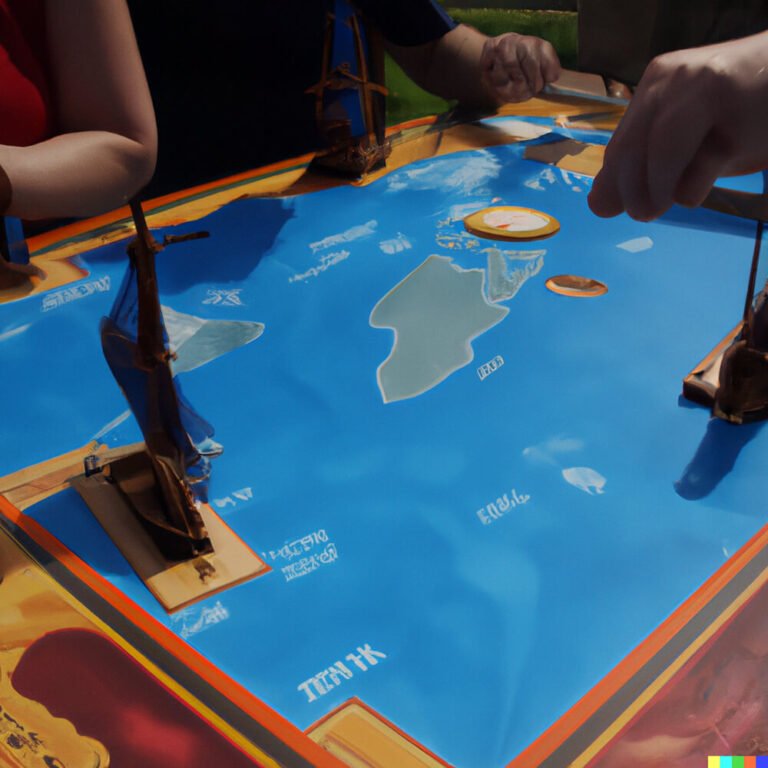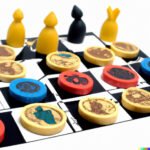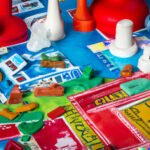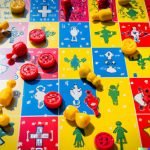Are you looking for classic board games for 5 year olds that are not only fun but also educational? Board games have been a staple in children’s playtime for decades, offering numerous benefits for their development. In this article, we will explore the world of classic board games and why they are particularly beneficial for 5 year olds. From enhancing cognitive skills to fostering social interaction, these games can provide a valuable learning experience for young children.
Playing classic board games can be a great way to introduce 5 year olds to important skills such as critical thinking, decision making, and problem-solving. Not only do these games offer an opportunity for cognitive development, but they also promote social and emotional growth. As children navigate through the rules and interact with others during gameplay, they learn how to take turns, follow instructions, and work cooperatively with their peers.
In the following sections, we will delve into the specific benefits of classic board games for 5 year olds, as well as provide recommendations for the top age-appropriate games. Additionally, we will discuss how these games can be utilized as educational tools and offer practical tips for parents and caregivers on making game time enjoyable and enriching for their little ones.
Join us as we explore the world of classic board games and discover the many ways they can contribute to a child’s overall development.
Benefits of Classic Board Games for 5 Year Olds
Classic board games for 5 year olds offer a multitude of benefits that go beyond just entertainment. These games have been beloved by families for generations, and they remain a valuable tool for child development. Playing these classic board games helps children develop key skills in areas such as cognition, social interaction, and emotional regulation.
Cognitive Benefits
Playing classic board games can significantly enhance a 5 year old’s cognitive development. Games like Candy Land and Chutes and Ladders help young children practice their counting, color recognition, and pattern recognition skills. Additionally, strategy-based games like Connect 4 or Tic Tac Toe can improve a child’s critical thinking and problem-solving abilities.
Social Benefits
Board games provide an excellent opportunity for 5 year olds to engage in social interaction with family members and peers. These games teach children how to take turns, follow rules, and work together towards a common goal. Furthermore, playing board games fosters important skills such as good sportsmanship, communication, and cooperation.
Emotional Benefits
Engaging in classic board games also helps 5 year olds regulate their emotions. Winning and losing are part of the game, and experiencing both outcomes teaches children resilience and emotional control. Moreover, playing these games instills a sense of confidence when they successfully complete tasks or achieve goals within the game setting.
Top 5 Classic Board Games for 5 Year Olds
When it comes to classic board games for 5 year olds, there are several options that are not only entertaining but also educational. These games provide a great opportunity for young children to have fun while learning important skills such as taking turns, following rules, counting, and strategy development. Here are the top 5 classic board games that are perfect for 5 year olds:
- Candy Land: This colorful and simple game is a great way for young kids to learn about colors and following directions. The game also helps with pattern recognition and is a fantastic introduction to the world of board games.
- Chutes and Ladders: Another classic game that teaches children about counting and numbers in a fun and interactive way. It also helps reinforce concepts such as patience and good sportsmanship.
- Memory Game: While not a traditional board game, Memory is a fantastic way for kids to enhance their memory skills while having fun. Matching pairs of cards encourages cognitive development and critical thinking.
- Hi-Ho. Cherry-O: This game is perfect for teaching young kids basic math skills such as addition and subtraction through the use of colorful fruit pieces. It’s a great way to make learning math enjoyable for 5 year olds.
- Connect Four: A simple yet engaging game that introduces children to strategic thinking while also improving their fine motor skills through placing the chips into the grid.
These classic board games are not only enjoyable for children but also provide valuable learning opportunities that can aid in their cognitive, social, and emotional development.
In addition to being entertaining, these games can teach valuable life skills such as patience, turn-taking, and fair play. Additionally, they promote healthy competition by encouraging kids to strive for success within the rules of the game.
Overall, these classic board games can help 5 year olds develop important skills whilst having fun with family or friends. Investing in these types of games at an early age can set the foundation for a lifelong love of strategy-based play.
How to Choose the Right Board Game for Your 5 Year Old
When it comes to choosing the right board game for your 5 year old, there are a few important factors to consider. Here are some tips and considerations to keep in mind:
- Age Appropriateness: One of the most crucial considerations when choosing a board game for a 5 year old is the age appropriateness of the game. Look for games that are specifically designed for young children, with simple rules and easy-to-understand gameplay.
- Educational Value: Consider the educational value of the game. Many classic board games for 5 year olds offer opportunities for learning important skills such as counting, color recognition, and strategy development.
- Game Duration: Pay attention to the length of time it takes to play the game. Young children may have shorter attention spans, so it’s beneficial to choose games that can be played in a relatively short amount of time.
In addition to these considerations, it’s also helpful to think about your child’s interests and preferences when selecting a board game. Some children may gravitate towards games with specific themes or characters, while others may prefer games that involve more physical activity. By considering your child’s unique personality and preferences, you can choose a board game that they will truly enjoy.
When choosing a classic board game for your 5 year old, it’s important to keep in mind that the primary goal is to facilitate fun and engaging playtime while also promoting valuable skills and learning opportunities.
Whether it’s introducing them to classics like Candy Land or Chutes and Ladders, or opting for newer games with an educational twist like Zingo or Hoot Owl Hoot., there are plenty of options available that cater perfectly to this age group. By carefully selecting a board game that aligns with your child’s interests and developmental stage, you can ensure that playing becomes an enjoyable and enriching experience for them.
Educational Aspects of Classic Board Games
Classic board games for 5 year olds offer a wide range of educational benefits that can aid in their overall development. These games help children develop essential cognitive skills such as problem-solving, critical thinking, and decision-making. When kids play classic board games, they are required to follow rules, make strategic decisions, and use their memory, all of which contribute to their intellectual growth.
In addition to cognitive development, classic board games also promote social and emotional skills in 5 year olds. Through gameplay, children learn how to take turns, cooperate with others, and handle both winning and losing gracefully. These games provide an opportunity for kids to practice good sportsmanship and learn to regulate their emotions in a supportive setting.
It is important for parents and caregivers to recognize the learning potential of classic board games for 5 year olds. By actively engaging with these types of games at a young age, children can strengthen various aspects of their development while having fun at the same time. As such, these games are an invaluable tool for aiding in the holistic growth of young kids.
| Educational Benefits | Examples |
|---|---|
| Cognitive Skills | Memory game, Candy Land |
| Social Skills | Chutes and Ladders, Monopoly Junior |
| Emotional Skills | Operation Game, Guess Who? |
Tips for Playing Classic Board Games With 5 Year Olds
Playing classic board games with 5 year olds can be a fun and educational experience for both children and adults. Here are some tips to make game time enjoyable and beneficial for your little one.
First, it’s important to choose age-appropriate board games that are simple enough for a young child to understand and play. Some classic board games for 5 year olds include Candy Land, Chutes and Ladders, and Hi Ho Cherry-O. These games help kids develop early counting skills, color recognition, and turn-taking abilities.
When playing board games with your 5 year old, it’s essential to create a positive and supportive environment. Encourage your child to take turns, follow the rules, and be a good sport whether they win or lose. This helps them learn important social skills such as patience, teamwork, and sportsmanship.
Additionally, use game time as an opportunity to bond with your child and strengthen your relationship. Engage in meaningful conversations during gameplay, praise their efforts and achievements, and have fun together. This quality bonding time is invaluable for their emotional development.
It’s important not to underestimate the impact of classic board games on a 5 year old’s cognitive development. These games can help improve memory skills, critical thinking abilities, decision-making skills, and problem-solving capabilities in young children.
| Tips | Benefits |
|---|---|
| Choose age-appropriate games | Develop early counting skills |
| Create a positive environment | Learn social skills like patience and sportsmanship |
| Bond with your child during gameplay | Strengthen emotional development |
| Promote cognitive development | Improving memory skills and critical thinking abilities |
Fun Alternatives to Classic Board Games
When it comes to 5 year olds, classic board games have proven to be beneficial for their cognitive and social development. However, if you’re looking for fun alternatives to these traditional games, there are plenty of non-traditional activities that offer the same benefits. From interactive storytelling to puzzle-solving adventures, here are some engaging options for young children:
Interactive Storytelling
Instead of a classic board game, consider interactive storytelling as an alternative. This activity encourages creativity and imagination, allowing children to become part of the story by making choices and contributing their ideas.
It also helps with language development and communication skills as kids engage in dialogue with the storyteller or other participants. Whether it’s using puppets, props, or simply using their own imagination, interactive storytelling can be a fun and educational alternative to classic board games for 5 year olds.
Puzzle-Solving Adventures
Another alternative to classic board games is engaging in puzzle-solving adventures. This can include treasure hunts, mystery solving games, or even age-appropriate escape room challenges. These activities not only encourage critical thinking and problem-solving skills but also promote teamwork and collaboration among children. By working together to solve puzzles and complete challenges, kids can develop important social and emotional skills while having a blast.
Building and Construction Games
For young children who enjoy hands-on activities, building and construction games can be a great alternative to classic board games. Whether it’s playing with building blocks, creating structures with playdough, or building simple machines with construction kits, these activities help develop fine motor skills, spatial awareness, and creativity. They also provide opportunities for imaginative play and open-ended exploration, making them an excellent choice for young kids who may not be interested in traditional board games.
By incorporating these fun alternatives into your child’s routine, you can provide them with a wide range of cognitive and social benefits while keeping them entertained and engaged. Whether it’s through interactive storytelling, puzzle-solving adventures, or building games, there are many ways to promote learning and development outside of the realm of classic board games for 5 year olds.
Conclusion
In conclusion, classic board games for 5 year olds are a valuable tool in promoting cognitive, social, and emotional development. These traditional games offer numerous benefits for young children, from improving their memory and critical thinking skills to teaching them how to take turns and work cooperatively with others. By incorporating these games into their routine, parents can provide meaningful learning experiences for their children while also creating opportunities for quality bonding time.
It’s important for parents to consider the educational aspects of classic board games when choosing the right game for their 5 year old. By selecting games that are age-appropriate and align with their child’s interests and abilities, parents can ensure that the gaming experience is both enjoyable and beneficial.
Additionally, it’s crucial for parents to actively participate in game time, providing guidance and encouragement while also allowing the child to make independent decisions, fostering a sense of agency and confidence.
As such, I strongly encourage parents to incorporate classic board games into their child’s routine as a means of promoting holistic development. While there are certainly modern alternatives available, the timeless appeal of these traditional games cannot be overstated.
Classic board games for 5 year olds not only provide educational value but also create precious memories that will last a lifetime. So let’s embrace the time-tested classics and make game time an enriching part of our children’s formative years.

I love playing all kinds of games – from classics like Monopoly to modern favourites like Ticket to Ride.
I created this blog as a way to share my love of board games with others, and provide information on the latest releases and news in the industry.





